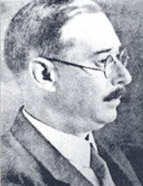

JC thus legitimised historiographical primacy in cultural research. Together with Dilthey – in his historiographical didactic approach to capturing philosophical problems and in his critique of Monadology – he admitted that ‘man can only truly be known in history and not in introspection’ (preface to WILHELM DILTHEY, Leibniz e a sua época [Leibniz and his time] , 1947, p. XX), postulating, in the theoretical effort of a philosophy of philosophies through the rational elucidation of problems that emerge from factuality, that ‘only H istory can thus give us the totality of human nature, through the morphology of the behaviour of consciousness and the structural diversity of conceptions of the world’, access to which is prohibited by the abusive extrapolation (positivist or scientist) of physical-natural science ( Idem , pp. XXII-XXIII). As an epistemic instance (knowledge of the human past) and a guide to the method, discerning historical reason was placed on the horizon and investigative praxis from a twofold perspective: ‘Under human events, so varied and contingent, undoubtedly flows the sumus , i.e., the sociologically impersonalised relationship of man to man; but it also flows the ego , i.e., the concrete and personal man’.
The historical narrative (summed up in the instantaneous duration ), questioning the Hegelian opposition, continuities / discontinuities ( OC , V, p.306), is the ‘dust’ from which ‘the contents and forms of life that serve as the foundation of the historical process’ must be rescued ( Idem , p.299). By refuting infradeterminations or sociological and economistic reductions to the history of culture, as materialism demanded, he does not fail to exemplarily read the Sombartian version of the modern biography of capital that Marx had indicated. But in his exegesis of the decadence and resistance of the archaic clerical-nobiliary codes in the face of the Modern irruption of the world (Renaissance, the century of genius , Enlightenment) and the bourgeois experience of Time, he adds: ‘immobility in the material conditions of life was accompanied, or rather preceded, by sentimental immobility’, because ‘ideas are not transmitted mechanically as things external to man’ ( Idem , pp. 305-06).
This work is financed by national funds through FCT - Foundation for Science and Technology, I.P, in the scope of the projects UIDB/04311/2020 and UIDP/04311/2020.
